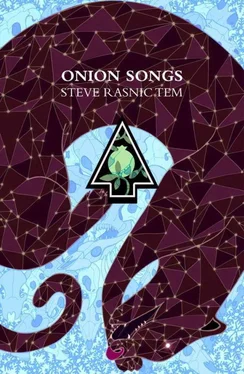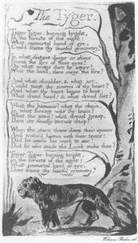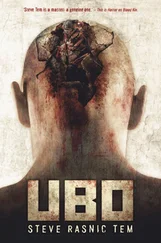Illness, as he would have told her had she just asked, brings indignity. He was the first to fall, robbed of speech and mobility by a blood clot, and he greatly admired the way she put aside her prejudices in order to take care of him. Even changing him when the aide was off duty. She didn’t complain, not even involuntarily. She simply did what needed to be done for someone she loved. Could he have done the same for her? He wasn’t so sure. At least not with such care, such equanimity.
She’d been bent over him, rearranging his pillow, making it so that it fit perfectly beneath his ears, and he was feeling absurdly grateful, because a crease in the case had been torturing him for hours. Then he detected an ever so faint aroma of urine, and he stared at her in surprise as her expression changed, as if some startling idea suddenly entered her consciousness, and almost immediately he knew it was a stroke—she’d been assaulted by the fairies, and she fell away from him and he couldn’t even shout his outrage at the terrible thing. The anger leaked out of him a bit at a time over the following hours, weeks, and months.
What is left of the woman he loved in the nearby bed he cannot know. There is so much he cannot know.
* * *
He does not know when the ringing in his ears first began. It seems a recent event but he cannot be sure. He suspects it’s the song the brain sings when it dies but of course there is no way for him to know if this is true. Sometimes it is loud and sometimes it is quite soft. Sometimes it is all he can do not to weep when he hears it.
One of the things his wife and he enjoyed most was listening to music together. Now those days are gone, he thinks, or are they? Perhaps even now they are listening to the same tune.
Suddenly there is quiet as if a door has been closed. This is the way. This is the way. When the view becomes unbearable, then shut the door.
He closes his eyes against her death and a loud voice grows, singing from somewhere far below him. It is his own voice he hears, even though his lips do not move.
* * *
He has heard, of course, that as the brain dies neurons fire indiscriminately, and what the mind perceives in such circumstances is not to be trusted, is fanciful in its last, desperate attempts to complete a train of notions, and all that is witnessed under these conditions is a product of an electrified imagination.
So what, he thinks. When you are reduced to brain, and the various senses that are accessories to the brain, what more could there be, and certainly, what could be more important than that first trip into insubstantiality where only the imagination can report back, strapped to a shuddering, unhesitant engine of unreason?
So he isn’t alarmed to see the great goat stroll through the door, like some new owner surveying the premises purchased for a hard price. The goat gazes at him only briefly, a polite but dismissive look at an eager would-be lover found wanting.
Instead the goat lingers at his wife’s side and he is suddenly overcome not only by a bare, numbing grief for her but also by the very reek of her, suddenly more powerful than ever before, like a focused sample of every undrained outhouse and waste pool, every foul abattoir avoided by so-called decent, civilized people. He is terrified, tries to turn away and when he knows the attempt useless, closes his eyes tight as his love for her.
But the goat’s huge laughter tears his eyelids open and he has to look at the thing, prancing and dancing over his wife’s disastrous bed, now her grave. The goat rises on its hind legs and pounds the ceiling with its split hooves, shaking down plaster and lath, wiring and insulation batts, jangling pipes and a steady and gorgeous fall of fine white powder, continuing long after the goat has settled back onto its haunches, long snout pushed heavenward, eyes closed in pleasure over the bath it is receiving.
He surprises himself thinking how oddly beautiful it all seems, the abstract patterns of debris framing the now snow-white animal fur, the blissful yard-long smile spread around the goat’s huge head.
Then quickly the goat mounts his dead wife’s bed, licks the disaster of her with its long red tongue, and lowers itself, and lowers itself, until it can begin its thrusts effectively, a great back and forth of ripping and damage as it enters his wife’s sad remnants of flesh, forcing a terrible gasping of air out of her mouth in a hideous parody of orgasm.
After the great goat has done whatever it can, it rises and walks off the bed, dragging remnants of the woman he loved most of his life still stuck to fur, to belly, to genitalia, most of it disintegrating as the goat strides to the door and out, her skin and hair shattering against the floor like bits of frozen twig and leaf.
* * *
A darkness begins to seep from scattered corners of the bedroom. It breaks into wings and the things that wear wings, insects and disasters spat out and eager to escape. Their flight soon fills the room, until he can see nothing else. When their edges fly too close he can feel his skin tearing, but not enough, sweet lord, to bring him release.
In the middle of the world a huge wind begins to turn. In the distance his life shimmers like a beautiful, barely noticed thing, and as he watches the dark shapes rush to surround it: the almost loves and the never agains, their narrow heads brightly plumed with the naive prayers of children.
So he has his release, his ending, his final day. And he’s ashamed to say he’s grateful not to have suffered what his wife had to suffer. He’s grateful to have had some peace at the end, deserved or not it matters little. He’s grateful.
What more is there to say at the end, even when he can say nothing? He said all he knew to say a long time ago. Some things can only be said in the language of angels.
* * *
Dad? Dad, are you awake? Did you sleep well? Time to get up now. Time for dinner.
He is awake, his eyes wide open, but only now beginning to see. He is so absurdly grateful he begins to weep. No ending here after all. He wasn’t ready, he wasn’t ready. And somehow the angels knew.
So kind of his daughter to wake him. She’s always been a good daughter, a wonderful daughter in fact, and he is grateful. So many fathers have not been as fortunate.
So many fathers have children who leave them, children who stay away even when they are home, children who pretend they have no fathers or mothers, children who have this other life, waiting for their fathers to die.
Dinner, Daddy. Don’t let it get cold.
He gazes around the bedroom and again it amazes him how clean she keeps it, how everything seems in its perfect place, how it had no perfect place until she put it there. The bed he lies on so carefully made, barely disturbed even as he eases from between its crisp white sheets. His wife’s bed, equally well made and laden with roses to honor her memory. When did she die? He’s not quite sure, because her passing was so peaceful—their daughter has taken such good care of them both he knows she passed with a minimum of fuss and pain.
He had so many fears about this time—how foolish it had been to worry and obsess about what must come to us all. How much better to ease into it without struggle, to see it as simply another stage, no better or worse than any other, just another adventure at the end of your days.
Daddy, please. I don’t want you to starve.
Eating always made him feel better, so why not do what made you feel better? Store enough up to last you through the lean times, was the way his father had always put it. The world had a way of eating at you, so what better way to survive than to have more of you against the world’s angry appetite.
Читать дальше












